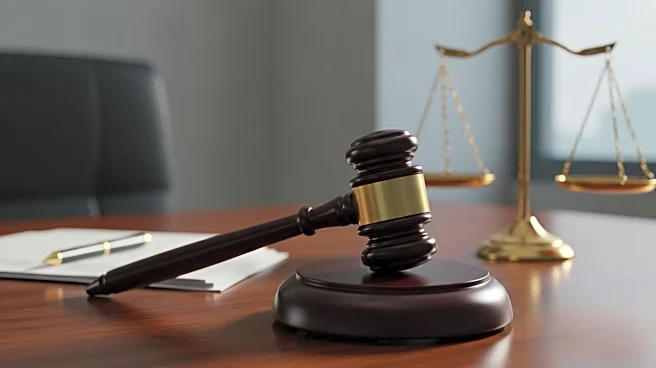What's Happening?
A federal judge in Chicago has criticized the 'Schedule A' litigation tactics used in mass lawsuits against counterfeiters, arguing that they undermine due process protections. Judge John F. Kness highlighted issues with the practice, which often involves sealed lists of defendants who are unaware of lawsuits until their assets are frozen. The judge's ruling, which denied a restraining order in a case involving counterfeit motorcycle apparel, has reignited debate over the legality and ethics of these tactics. The ruling could influence other judges to reconsider the use of 'Schedule A' in combating counterfeiting.
Why It's Important?
The judge's criticism of 'Schedule A' litigation tactics raises significant concerns about legal fairness and due process in anti-counterfeiting efforts. These practices, concentrated in the Northern District of Illinois, have been used to combat global counterfeiting but may infringe on defendants' rights. The ruling could lead to changes in how courts handle such cases, potentially affecting the effectiveness of anti-counterfeiting measures. Legal experts and stakeholders in intellectual property law are closely watching the implications for future litigation and enforcement strategies.
What's Next?
The ruling may prompt other judges to reevaluate the use of 'Schedule A' tactics, potentially leading to changes in how anti-counterfeiting cases are prosecuted. Legal professionals and policymakers may seek legislative solutions to address the concerns raised by Judge Kness. The decision could influence ongoing and future cases, impacting how intellectual property rights are enforced against counterfeiters.










